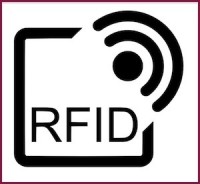RFID technology is changing the logistics industry
 Radio-frequency identification (RFID) has become an effective and growing technology among several industries, particularly the logistics industry.
Radio-frequency identification (RFID) has become an effective and growing technology among several industries, particularly the logistics industry.
RFID is, in the simplest terms, a substantial evolution on the humble barcode. As an example, imagine your typical in-store grocery shopping experience. Currently, each product has a barcode that has to be scanned individually at a checkout.
RFID tags work differently as they are linked to a networked system that’s capable of tracking every single product in your shopping trolley. Because it is a radio-frequency system, every tag can essentially be scanned simultaneously. That means if all products came with an RFID tag instead of a barcode, they would all be scanned at once as soon as you reach the checkout. When you have over 100 products in your shopping trolley, that’s a substantial cut down on time.
How RFID technology is improving the logistics industry
When it comes to logistics, RFID is offering a comparable benefit by having shipped goods and products tagged to a central network system. RFID tags can contain a wealth of information, including the type of product, the destination it is heading, when it was dispatched, who the recipient of the product is, its current location via GPS, and more.
This type of information being accessible 24/7 via an RFID-applicable network means both consumers and logistics companies can remain up-to-date on a shipment’s progress at all times.
Essential information and efficiency
For logistics companies, this ease of access to key information is beneficial in two ways.
First of all, consumers like to know where their ordered goods are. The more accurate and current the information, the better. Nothing can frustrate consumers quite like knowing a product has shipped, only to then not know how close or far away it is until it reaches their doorstep. When you can provide consumers with a clear indication of where their impending delivery is, it helps remove much of the ambiguity.
The second benefit comes in the form of efficiency within the logistics industry. RFID technology essentially provides companies with complete control over seeing how every single delivery is progressing. This, in turn, makes identifying potential efficiency problems easier (e.g. Is this specific route truly the most efficient?).
A competitive edge
Embracing RFID technology presents a competitive edge for logistics companies (provided they get in before others, of course). When a business or even your average day-to-day consumer is looking for a logistics company to engage with, they want to know they’ll be getting the best service for their investment.
The way in which RFID can allow them to track their own goods and help improve your own logistics processes is a notable step in the right direction. RFID technology can also improve any of your business’s automated processes, as well.